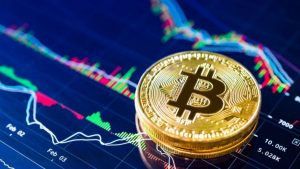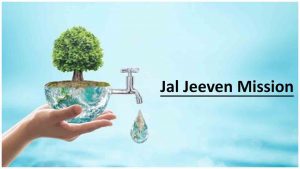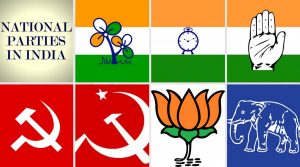Today Current Affairs: 5th October 2021 for UPSC IAS exams, State PSC exams, SSC CGL, State SSC, RRB, Railways, Banking Exam & IBPS, etc
Table of Contents
Pandora Papers:

There are at least 380 persons of Indian nationality in the Pandora Papers.
- The Pandora Papers investigation is the world’s largest-ever journalistic collaboration, involving more than 600 journalists from 150 media outlets in 117 countries.
- The investigation is based on a leak of confidential records of 14 offshore service providers that give professional services to wealthy individuals and corporations seeking to incorporate shell companies, trusts, foundations and other entities in low- or no-tax jurisdictions.
- The entities enable owners to conceal their identities from the public and sometimes from regulators.
- Often, the providers help them open bank accounts in countries with light financial regulation.
- The Panama and Paradise Papers dealt largely with offshore entities set up by individuals and corporates respectively.
- The Pandora Papers investigation shows how businesses have created a new normal after countries have been forced to tighten the screws on such offshore entities with rising concerns of money laundering, terrorism funding, and tax evasion.
- The Indian Trusts Act, 1882, gives legal basis to the concept of trusts.
- While Indian laws do not see trusts as a legal person/ entity, they do recognise the trust as an obligation of the trustee to manage and use the assets settled in the trust for the benefit of ‘beneficiaries’. India also recognises offshore trusts i.e., trusts set up in other tax jurisdictions.
Crypto Currency:

International Monetary Fund (IMF) has warned against the adoption of Crypto currency, saying it can threaten financial stability of emerging markets.
- According to the IMF, Crypto currency poses new challenges to financial stability and consumer protection risks remain substantial given limited or inadequate disclosure and oversight.
- The total market value of all the crypto assets surpassed 2 trillion dollars as of September 2021, a 10-fold increase since early 2020.
- IMF’s financial experts said, anonymity of crypto assets also creates data gaps for regulators and can open unwanted doors for money laundering, as well as terrorist financing.
- Although authorities may be able to trace illicit transactions, they may not be able to identify the parties to such transactions, they said.
- Additionally, the crypto ecosystem falls under different regulatory frameworks in different countries, making coordination more challenging, IMF said.
Gaming Disorder:

Gaming addiction, a disorder is quickly growing as the pandemic spurred an increased use of Internet devices.
- According to the All India Gaming Federation, India’s online gaming industry is expected to be worth ₹15,500 crore by 2023.
- A 2019 survey by the U.S.-based Limelight Networks found that India had the second largest number of gamers after South Korea.
- The World Health Organization categorised gaming disorder as a mental health condition in 2018.
- In September 2021, China limited gamers under 18 years to just three hours of online games per week, during specified times, and made the industry responsible for enforcing the restriction.
- In India, legal focus has been on recent laws in the southern States seeking to ban online games such as rummy, poker or even fantasy sports which offer prize money or financial stakes.
- Last week, the Kerala High Court quashed such a law in the State, accepting the industry’s stance that, as games of skill rather than chance, they should not trigger bans on gambling.
National Day For Truth And Reconciliation:

Canada marked its first ever National Day for Truth and Reconciliation on September 30 to honour the lost children and survivors of the country’s indigenous residential schools, their families and communities.
- The aim of the holiday is to educate and remind the citizens of the history of indigenous children and remember their suffering.
- All citizens were encouraged to wear the colour orange to highlight how indigenous children were robbed of their culture and freedoms.
- Earlier this year, hundreds of unmarked burial sites of indigenous students, belonging to 215 children of the Kamloops Indian Residential school from Canada’s British Columbia were discovered. This caused a national outrage in the country and prompted Indigenous groups to call for a nationwide search for such mass graves.
- Canada’s Truth and Reconciliation Commission (TRC) had after this concluded that such Residential Schools were “a systematic, government- sponsored attempt to destroy Aboriginal cultures and languages and to assimilate Aboriginal peoples so that they no longer existed as distinct peoples.” It further equated the operation and aim of such schools to a “cultural genocide.”
- Later, calls to action to honour the lost lives were delivered. Then, the Canadian Parliament legally approved this federal holiday.
The Draft Electricity (Rights of Consumers) Amendment Rules, 2021:

The Union Ministry of Power has promulgated the Electricity (Transmission System Planning, Development and Recovery of Inter-State Transmission Charges) Rules 2021.
- The rules underpin a system of transmission access which is termed as a General Network Access in the inter-state transmission system.
- This provides flexibility to the States as well as the generating stations to acquire, hold and transfer transmission capacity as per their requirements.
- Thus, the rules will bring in rationality, responsibility and fairness in the process of transmission planning as well as its costs.
- In a major change from the present system of taking transmission access, power plants will not have to specify their target beneficiaries.
- The rules will also empower state power distribution and transmission companies to determine their transmission requirements and build them.
- Also, states will be able to purchase electricity from short term and medium term contracts and optimize their power purchase costs. Apart from introducing GNA, the rules also specify clear roles of various agencies involved in the transmission planning process.
- The Central Electricity Authority shall prepare a short-term plan every year on rolling basis for next 5 years and perspective plan every alternative year on rolling basis for next 10 years.
- The rules have enabled, for the first time, that the transmission capacity can be sold, shared or purchased by the States and generators.
North Korea Has Warned The UN Security Council Against Criticising The Isolated Country’s Missile Programme:

North Korea has warned the UNSC about the consequences it will bring in the future in case it tries to encroach upon the sovereignty of North Korea.
It has accused the UN body of a “double-dealing standard” because it doesn’t equally take issue with similar weapons tests by the U.S. and its allies.
- After a six-month hiatus, North Korea resumed missile tests in September, launching newly developed missiles, including nuclear-capable weapons that place South Korea and Japan within their striking distances.
- Under multiple UN Security Council resolutions, North Korea is banned from engaging in any ballistic missile activities as the country aims to mount nuclear weapons on its ballistic missiles.
- The United Nations Charter established six main organs of the United Nations, including the United Nations Security Council (UNSC).
- The Security Council has the power to make decisions that member states are then obligated to implement under the Charter.
- Permanent and Non-Permanent Members: The UNSC is composed of 15 members, 5 permanent and 10 non-permanent.
- Each year, the General Assembly elects five non-permanent members for a two-year term.
About Security Council Presidency:
- The presidency of the Council is held by each of the members in turn for one month, following the English alphabetical order of the Member States names.
- It rotates among the 15 member-states of the council monthly.
- The head of the country’s delegation is known as the President of the United Nations Security Council.
- The president serves to coordinate actions of the council, decide policy disputes, and sometimes functions as a diplomat or intermediary between conflicting groups.
Proposed UNSC reforms:
- Reform of the United Nations Security Council (UNSC) encompasses five key issues: categories of membership, the question of the veto held by the five permanent members, regional representation, the size of an enlarged Council and its working methods, and the Security Council-General Assembly relationship.
Jal Jeevan Mission (JJM):

Prime Minister Narendra Modi launched a newly designed Jal Jeevan Mission (JJM) mobile application on October 2, 2021, Gandhi Jayanti.
- The app would enable anyone to fund provision of tap water in rural parts of India.
About the Jal Jeevan Mission:
- JJM envisages supply of 55 litres of water per person per day to every rural household through Functional Household Tap Connections (FHTC) by 2024.
- It is under the Ministry of Jal Shakti.
- It was launched in 2019.
- The mission ensures:
- Functionality of existing water supply systems and water connections.
- Water quality monitoring and testing as well as sustainable agriculture.
- Conjunctive use of conserved water.
- Drinking water source augmentation.
- Drinking water supply system, grey water treatment and its reuse.
- It also encompasses:
- Prioritizing provision of FHTCs in quality affected areas, villages in drought prone and desert areas, Sansad Adarsh Gram Yojana (SAGY) villages, etc.
- Providing functional tap connection to Schools, Anganwadi centres, Gram Panchayat buildings, Health centres, wellness centres and community buildings.
- Technological interventions for removal of contaminants where water quality is an issue.
The Mission is based on a community approach to water and includes extensive Information, Education and Communication as a key component of the mission.
- JJM looks to create a jan andolan for water, thereby making it everyone’s priority.
- The fund sharing pattern between the Centre and states is 90:10 for Himalayan and North-Eastern States, 50:50 for other states, and 100% for Union Territories.
Election Commission Decides On Party Symbols:

The Election Commission of India (ECI) has frozen the ‘Bungalow’ election symbol of the Lok Janshakti Party (LJP), so that neither of the two factions of the party will be able to use it in the coming Assembly byelections for the Kusheshwar Asthan and Tarapur seats in Bihar.
- This is not something new. Over the last few years, two other prominent cases of parties splitting, followed by a tussle over the election symbol, have been seen with regard to the Samajwadi Party (Cycle) and the AIADMK (Two leaves) in 2017.
As per the guidelines, to get a symbol allotted:
- A party/candidate has to provide a list of three symbols from the EC’s free symbols list at the time of filing nomination papers.
- Among them, one symbol is allotted to the party/candidate on a first-come-first-serve basis.
- When a recognised political party splits, the Election Commission takes the decision on assigning the symbol.
Powers of Election Commission:
- The Election Symbols (Reservation and Allotment) Order, 1968 empowers the EC to recognise political parties and allot symbols.
- Under Paragraph 15 of the Order, it can decide disputes among rival groups or sections of a recognised political party staking claim to its name and symbol.
- The EC is also the only authority to decide issues on a dispute or a merger. The Supreme Court upheld its validity in Sadiq Ali and another vs. ECI in 1971.
As per the Election Symbols (Reservation and Allotment) (Amendment) Order, 2017, party symbols are either:
- Reserved: Eight national parties and 64 state parties across the country have “reserved” symbols.
- Free: The Election Commission also has a pool of nearly 200 “free” symbols that are allotted to the thousands of unrecognised regional parties that pop up before elections.
- On the question of a split in a political party outside the legislature, Para 15 of the Symbols Order, 1968, states:
- “When the Commission is satisfied that there are rival sections or groups of a recognised political party each of whom claims to be that party the Commission may decide that one such rival section or group or none of such rival sections or groups is that recognised political party and the decision of the Commission shall be binding on all such rival sections or groups.”
- This applies to disputes in recognised national and state parties (like the LJP, in this case). For splits in registered but unrecognised parties, the EC usually advises the warring factions to resolve their differences internally or to approach the court.




